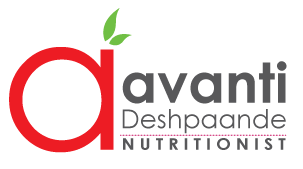Ketogenic diet is low carbs, high fat and adequate protein diet. It is proven to be beneficial for weight loss, health etc. many people have experienced keto diet.
In the ketogenic diet, a person’s body is starved and forced to change the mean of energy from carbohydrates or glycogen to using fats or ketone & can cause gastrointestinal intolerance. Initially body faces some problem like diarrhea, bloating, etc but this can be cured by simple remedies.
Here are some problems- their causes & steps how to avoid them
- DIARRHEA
Cause:
- Dairy food like paneer, cheese; lack in fiber & can cause diarrhea.
- Vomiting & fever can speed up dehydration.
- Taking artificial sweeteners as substitute of sucrose can cause distress in your stomach and may lead to diarrhea.
- High fiber diet can also cause diarrhea.
- Due to high protein than carbohydrate, your body needs time to adjust & can cause diarrhea.
- Directly consuming outside food may be the reason of diarrhea.
How to Avoid:
- Stay hydrated. Drink at least 15 to 16 glass of water.
- Add fermented foods (like kimchi, sauerkraut or fermented carrot pickle or cabbage pickle) or probiotics which contain live bacteria or yeast (like curd, kefir, lassi or kanji) to your diet for bulking up stools.
- Avoid eating raw vegetable (like salad or leafy vegetable), heavy foods (like fried food or non-veg) for that time period. Cook them and then you can consume it.
- You can also consume fresh vegetable soups.
- Broccoli, Avocado and cauliflower are superb for bulking stools.
- Cut down artificial sweeteners.
- Add some extra salt where ever possible to your diet so that the lost electrolyte can be replenished.
- STOMACH ACHE
Cause:
- If you are experiencing stomach ache, or cramping, the likely reason is dehydration.
- The process of being in ketosis requires a large amount of water than normal to convert fat into energy.
- Keto diet is helping your body to change the mean of energy from using glycogen or carbohydrates to using fats and ketone as the source of energy.
- Loss of electrolyte can also cause stomach cramp.
- Having large size meal can also cause stomach ache.
How to Avoid:
- Drink an incredible amount of water, at least 4 liters of water.
- Add some extra salt to your food and drink. So that lost electrolyte can be replenished. You can also add table salt, himalaya salt or rock salt to water & drink.
- Add more fat to your diet, as they are only the source of energy.
- Take small & frequent meal.
- CONSTIPATION
Cause:
- Main cause of constipation is lack of fiber in the ketogenic diet, especially in the beginning of diet scheme. As you are transferring your normal diet to keto diet which eliminates fiber from your diet. Cereals contain fiber due to which you were not facing constipation in your normal diet.
- Eating foods rich in fat can also cause constipation.
- Eating raw vegetable or outside food is also the reason for constipation.
- Consumption of alcohol and caffeine can increase the urge of urination and can dehydrate you.
- Some medication such as iron tablets, antacids, antidepressants can also cause constipation.
- Lack of exercise can also cause constipation.
How to Avoid:
- Increase salt and water intake about 30 to 35 glasses per day.
- Eat more non starchy and fiber rich foods. You can consume almonds, walnuts, cashew nuts etc.
- Consume more Medium Chain Triglyceride (MCT) oil as it helps in easy bowel movement. Coconut oil & coconut water contains MCT.
- You can also consume chia seeds with water or a tsp of ghee in luke warm milk.
- Avoid or reduce consuming alcohol & caffeine which can dehydrate you can cause constipation.
- Minimum exercise for 30 mins is necessary for your body.
- BLOATING
Cause: Here are some causes of bloating
- Due to consumption of high amount of protein or any other nutrient, can result in bloating.
- Drinking water while having meal can lower your stomach acidity (HCl concentration) and proteins may remain undigested.
- If you eat large portion of food, your digestion process slows down & you end up forming excess gas.
- Smoking or over consumption of carbonated drinks can form gas in your stomach.
- Another reason for bloating can be lactose intolerance.
How to Aviod:
- Drink at least 4 liters of water i.e., minimum 15-16 glass.
- Avoid artificial sweeteners, as some of them can also cause bloating.
- Do not drink water while having meal which can lower your stomach acidity.
- Take small & frequent meal.
- Consume protein as per you calorie intake. High amount of protein in your diet can cause bloating.
- Avoid fermented food for that period of time.
- Avoid consuming carbonated drinks or smoking; this could directly cause gases in your stomach.
- Increase cardio exercise.
- If you feel too much of bloated skip that meal & have less food in your next meal.
- ACIDITY
Causes:
- Keeping to much gap in between 2 meal.
- Consuming spicy food.
- Dairy products which contain lactic acid may be culprit. Try few days without dairy products.
- Adding baking soda to your food can also increase your acidity.
How to Avoid:
- Avoid spicy foods.
- Do not keep large gap between 2 meal.
- Avoid acidic fruits like tomato, orange, pineapple, mango.
- Probiotics (curd, yogurt, buttermilk, lassi, kefir etc) which contain live microbes like yeast or bacteria are best to balance your gut acidity.
- Chia seeds pudding or coconut milk is substitute over milk.
- Either add rock salt, Himalaya salt or table salt to your food & drink.
- Do not eat packed food or ready to eat food as this contains vinegar as preservative.
